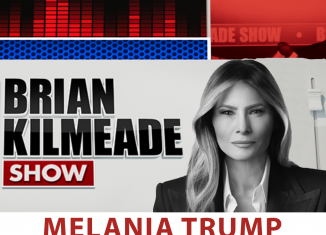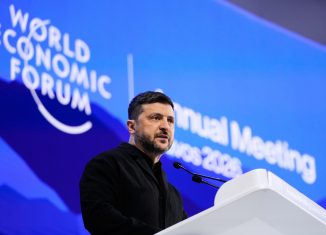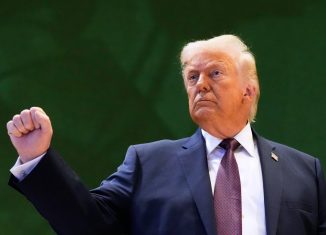Adm. James Stavridis On Missile Strike: 59 Tomahawks Not Going To Take Out the Syrian Air Force Nor Degrade Their Overall Capability
A White House visit by NATO Secretary General Jens Stoltenberg is scheduled for this Wednesday. President Trump hasn’t been shy when it comes to NATO, saying that the United States shoulders too much of the financial burden for the 28-nation alliance. Admiral James Stavridis, former Supreme Allied Commander at NATO 2009-20013 and and Dean of The Fletcher School at Tufts University joined Kilmeade and Friends today to discuss the meeting as well as North Korea, Navy pressure,
Adm. Stavridis on President Trump not being able to afford having strategic patience when it comes to North Korea:
The way to think of this is sort of two streams that are coming together. One is the nuclear weapons themselves and miniaturizing them, and the second stream is the ballistic missiles, the range of which are increasing. When those two streams cross it’s like in Ghostbusters, you really don’t want them to cross. That is when Kim Jong Un, an unstable and unpredictable leader, will have the capability to hit targets in the western United States. That’s coming in the next year or so and therefore this situation demands a response.
Adm. Stavridis on what options we have to avoid going to war:
I think we have some options but they’re not a terrific set. Option one is what President Trump and President Xi explored down at Mar-a-Lago which is a combined US-China diplomatic and sanctions package, because only the Chinese with the control they have over the Korean economy can really make sanctions. So that’s one option. The second option is what’s called covert activity, special forces, cyber attacks. That would have some capability. Or a third option which would be the most dramatic would be using that carrier group using long range bombers and going overtly after the nuclear program which is deeply buried and very hardened and would be a very difficult set of targets. So of those three I’m going to start with option one and hope that we can get the Chinese on board. We ought to be preparing options two and three and I know that we are.
Adm. Stavridis on what he thinks the tomahawks strike did and did not do:
I think the thing it did was create a strategic signal that the United States is willing to use force and President Trump said the chemical acts crossed lines for him, and therefore he responded to a line that he had felt and set. That’s a very good thing. What it did not do is really change the facts on the ground. 59 tomahawks is a significant strike but it’s not going to take out the Syrian air force nor is it going to significantly degrade their overall capability. So low tactical effect, high strategic effect is how I would call that one.
Adm. Stavridis on the possibility of President Trump coming around to the need for NATO:
I think the brush-back has in fact increased some levels of defense spending in Europe which is necessary and good. I think as I hear the tone coming out of the administration they are becoming greater fans of NATO and let’s face it, everything you and I have been talking about will require coalitions, allies and partners because we don’t want to be the world’s policemen and do this by ourselves. But we can be the leader of coalitions that have real impact in places like Syria, in North Korea and elsewhere. So I think NATO can play well in that role. Let’s hope that the dialogue coming up over the next couple weeks continues to reinforce that.







